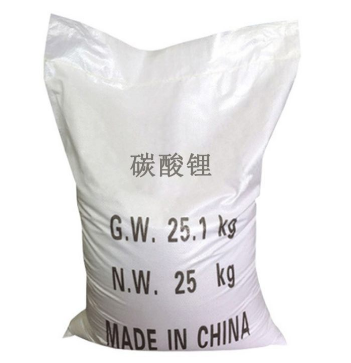Home / Products

Lithium carbonate (Li2CO3) is a crucial inorganic compound widely used across various industries, including electronics, ceramics, and healthcare. With a molecular weight of 73.89, this colorless monoclinic crystal is slightly soluble in water and dilute acids, but insoluble in ethanol and acetone. Discovered in 1817 by Swedish chemist A. Arfvedson and named "lithion" by his professor Jons Jakob Berzelius, lithium carbonate has played a pivotal role in various applications, from treating bladder stones in 1843 to being a key ingredient in the production of lithium-ion batteries today.
Basic Information
Lithium carbonate serves as a raw material in the production of various lithium compounds and is essential in the manufacturing of ceramics, glass, and aluminum smelting processes. It is a critical component in synthesizing lithium-ion battery cathodes, such as lithium cobalt oxide, manganese oxide, and lithium iron phosphate. In medicine, lithium carbonate is used to treat bipolar disorder and other psychiatric conditions due to its ability to stabilize mood. Its importance in the development of next-generation energy solutions, particularly in the automotive industry, cannot be overstated, as it plays a crucial role in enhancing the performance and longevity of electric vehicles.
PS Chemical Consortium has developed a cutting-edge production system for lithium carbonate that not only ensures high purity but also addresses environmental concerns. Our innovative process begins with lithium extraction from ores through crushing, grinding, and sieving to achieve the desired particle size. The lithium is then leached using selective solvents, followed by a concentration process where water is evaporated, leaving behind a highly concentrated lithium carbonate solution. Our proprietary method significantly reduces energy consumption and operational costs, while also minimizing environmental impact through advanced waste treatment systems. This eco-friendly approach ensures that our lithium carbonate production is both efficient and sustainable, meeting the highest industry standards.


